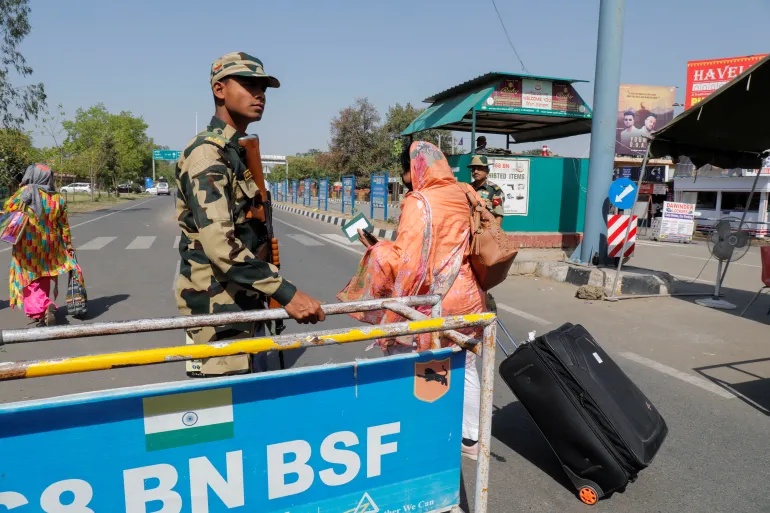India and Pakistan: On the Brink of Conflict Over Kashmir
Introduction
In April 2025, a deadly attack in Pahalgam, Indian-administered Kashmir, claimed the lives of 26 individuals, predominantly Hindu tourists. This incident has significantly heightened tensions between India and Pakistan, both nuclear-armed nations with a long history of conflict over the Kashmir region. The attack has not only led to a humanitarian crisis but also brought the two countries to the brink of war.
The Pahalgam Attack: A Tragic Event
On April 22, 2025, five armed militants opened fire on a group of tourists in the Baisaran Valley near Pahalgam, resulting in 26 fatalities and 20 injuries. The majority of the victims were Hindus, and the attackers reportedly singled out men, inquiring about their religion before opening fire. The Resistance Front, a militant group linked to the Pakistan-based Lashkar-e-Taiba, initially claimed responsibility for the attack but later retracted the statement. The incident has been described as the deadliest attack on civilians in India since the 2008 Mumbai attacks.
Immediate Repercussions
In the aftermath of the attack, India accused Pakistan of supporting cross-border terrorism and suspended the Indus Waters Treaty, a crucial water-sharing agreement between the two countries. India also expelled Pakistani diplomats, closed borders, and halted trade. Pakistan denied any involvement and retaliated by suspending the Simla Agreement, restricting trade, and closing airspace to Indian airlines. Both nations have engaged in cross-border skirmishes along the Line of Control, further escalating tensions.
Pakistan’s Diplomatic Efforts
Seeking to de-escalate the situation, Pakistan’s Prime Minister Shehbaz Sharif met with ambassadors from Saudi Arabia, Kuwait, and the UAE to request their support in defusing tensions with India. Pakistan emphasized its commitment to regional peace and called on Gulf allies to pressure India towards de-escalation. However, India has maintained its stance, demanding justice for the victims and holding Pakistan accountable.
Legal Challenges and International Concerns
Pakistan is preparing to legally challenge India’s suspension of the Indus Waters Treaty, arguing that it violates international agreements. The move has raised concerns about the potential for a broader conflict, with both countries being nuclear-armed. International bodies, including the United Nations, have called for maximum restraint and urged both nations to engage in dialogue to prevent further escalation.
Impact on Civilians
The renewed hostilities have had a profound impact on civilians living along the Line of Control in Kashmir. In Indian-administered areas, residents are living in fear, with limited access to shelters and emergency services. In Pakistani-administered regions, authorities have allocated emergency funds, closed religious seminaries for safety concerns, and placed emergency services on high alert. Humanitarian organizations are mobilizing resources to assist displaced families and provide aid to those affected by the escalating conflict.
Conclusion
The recent events in Kashmir have brought India and Pakistan to the brink of a potential conflict, with severe implications for regional stability and global security. It is imperative for both nations to engage in constructive dialogue, prioritize diplomacy, and work collaboratively to address the underlying issues fueling this longstanding dispute. The international community must also play a proactive role in facilitating peaceful resolutions and preventing further escalation.

Image Source: Al Jazeer
